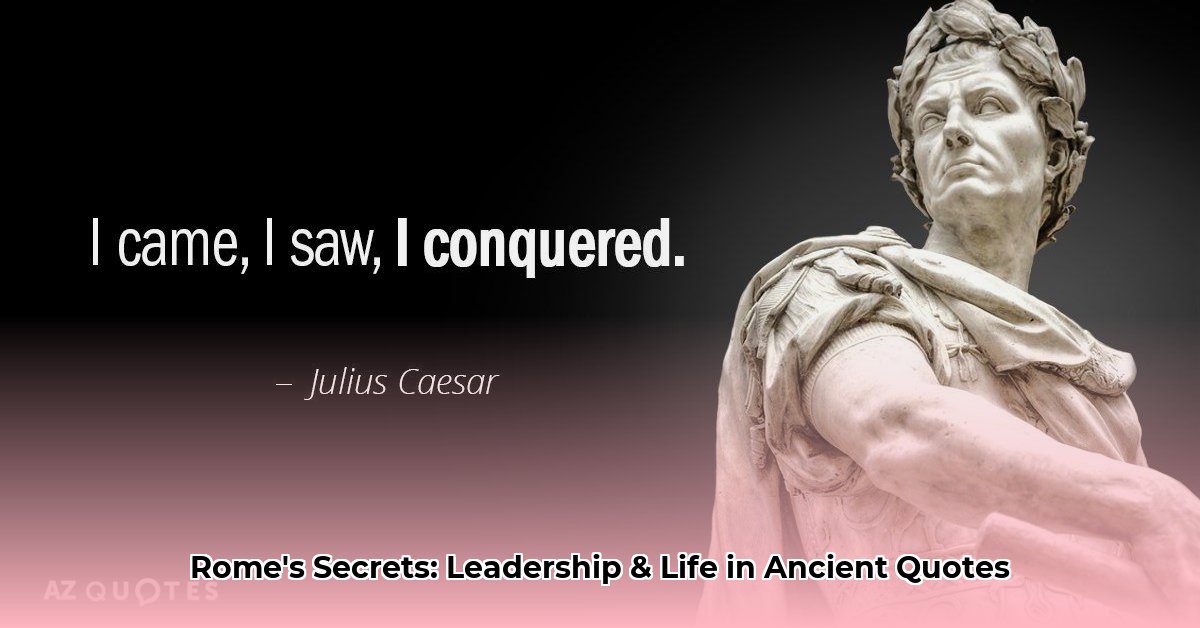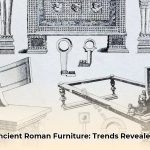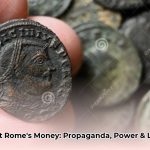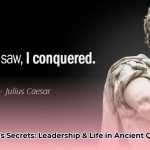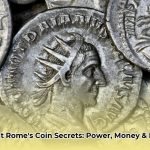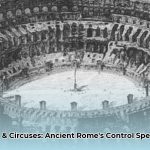Ever wonder how the principles that forged an empire centuries ago could still shape your decisions today? Far from being mere historical artifacts, the profound insights of ancient Roman leaders, philosophers, and citizens continue to resonate, offering indispensable guidance for contemporary life. This exploration invites you on a journey not of rote memorization, but into the practical counsel that fueled an empire and remains remarkably relevant. We will delve into some of their most iconic sayings, analyzing how these ancient words can profoundly influence how we approach leadership, adapt to challenges, and cultivate personal well-being in an increasingly complex world. Need some famous Roman quotes to inspire you?
The Enduring Pillars of Roman Wisdom: Virtue, Time, and Purpose
Ancient Rome’s influence stretches far beyond its monumental architecture and military conquests. The profound statements of its most prominent figures offer invaluable lessons for anyone seeking success in leadership or a more fulfilling personal existence. These teachings emphasize attributes like adaptability, self-control, and a deep-seated commitment to core values that transcend eras.
“Carpe Diem”: Embracing the Present Moment with Horace
The phrase “Carpe Diem,” Latin for “seize the day,” is much more than a popular idiom; it’s a potent call to action, first popularized by the eminent Roman lyric poet Horace (Quintus Horatius Flaccus, 65 BC – 8 BC). Horace, whose life spanned the tumultuous end of the Republic and the dawn of the Empire under Augustus, understood the transient nature of existence. His philosophy wasn’t about recklessness, but about recognizing the fleeting nature of time and the importance of making the most of the present rather than dwelling on past regrets or future anxieties.
This philosophy challenges us: Are you genuinely extracting maximum value from your present circumstances, or are opportunities passing you by while you defer action? Embracing “Carpe Diem” means cultivating a mindful awareness of the unfolding moment, recognizing that today’s opportunities are often finite. It’s an encouragement to engage fully, to act decisively, and to appreciate the richness of now.
Roman Virtues: The Path to Indomitable Inner Strength
For many Romans, particularly adherents of Stoic philosophy, true happiness and strength were not derived from ephemeral material wealth or shifting political power. Instead, figures like Lucius Annaeus Seneca (4 BC – 65 AD), a Stoic philosopher, dramatist, and advisor to Emperor Nero, and Emperor Marcus Aurelius (121 AD – 180 AD), the last of the “Five Good Emperors” and a profound Stoic philosopher, asserted that a meaningful and resilient life stemmed from cultivating key virtues. These virtues—wisdom, courage, justice, and temperance (or self-control)—were seen as the only true good, independent of external circumstances.
By focusing on what is within our control—our thoughts, reactions, and intentions—they believed one could navigate any adversity. This stoic discipline allowed Romans to face political upheaval, military campaigns, and personal loss with remarkable equanimity. Contemplate for a moment: how might integrating even a fraction of Stoic discipline, such as refining your reactions to uncontrollable events or upholding integrity in difficult choices, enhance your daily resilience and ethical compass?
Beyond Stoicism, the broader Roman concept of virtus (courage, excellence, moral character), gravitas (seriousness, dignity, self-control), and pietas (duty, devotion to gods, family, and state) formed the bedrock of their societal and personal ideals. These weren’t abstract concepts but practical guides for living a life of purpose and contribution.
Strategic Leadership: Enduring Lessons from Roman Commanders
The historical tapestry of ancient Rome provides a compelling study in leadership dynamics, showcasing both exemplary and cautionary tales. Qualities such as courage in the face of adversity, decisiveness, an unyielding commitment to the community’s welfare, and an extraordinary capacity for adaptation were consistently lauded and proven effective.
Consider the distinct leadership styles of Julius Caesar (100 BC – 44 BC), the renowned general and statesman known for his rapid, decisive campaigns and strategic brilliance, versus Marcus Aurelius, who prioritized moral and philosophical leadership, guiding an empire through both war and plague with remarkable philosophical fortitude.
The Roman military, a marvel of organization and discipline, offered rich ground for leadership lessons. Its enduring success was not solely built on brute force but on a sophisticated blend of innovative tactics, unwavering discipline, and a leadership ethos deeply influenced by practicality and resilience. This included their mastery of formations (like the triple line and the formidable testudo), superior logistics, and continuous training. Their capacity for innovation extended to engineering feats like roads and aqueducts, which were vital for rapid troop movement, communication, and economic stability—the very backbone of their vast and complex empire.
The following table illustrates how varied perspectives from Roman figures translate into actionable guidance for modern contexts:
| Leader/Source | Quote | Lesson for Modern Leaders |
|---|---|---|
| Julius Caesar | “Veni, vidi, vici.” (I came, I saw, I conquered.) | Emphasizes the power of clear vision and swift, decisive execution. Over-analysis can be detrimental; effective action is paramount for achieving objectives. |
| Marcus Aurelius | “The impediment to action advances action. What stands in the way becomes the way.” | Challenges are not insurmountable barriers but catalysts for innovation and growth. Obstacles can reveal new pathways and foster creative problem-solving. |
| Seneca | “Every new beginning comes from some other beginning’s end.” | Highlights the natural cycle of change. Embrace transitions as opportunities for renewal and the initiation of fresh endeavors, rather than fearing conclusions. |
| Vegetius | “If you want peace, prepare for war.” (Publius Flavius Vegetius Renatus, 4th C. AD) | Prudent anticipation and preparation for potential challenges are crucial for maintaining stability and achieving long-term objectives in any competitive environment. |
| Cicero | “A room without books is like a body without a soul.” (Marcus Tullius Cicero, 106 BC – 43 BC) | Emphasizes the critical importance of knowledge, continuous learning, and intellectual engagement as foundational elements for personal and organizational vitality. |
| Epictetus | “It is not what happens to you, but how you react to it that matters.” (Epictetus, 55 AD – 135 AD) | Cultivate emotional intelligence and self-mastery. Your response to external events, rather than the events themselves, determines your peace and effectiveness. |
Applying Ancient Principles in Modern Life
The timeless principles embedded in Roman thought offer practical applications for enhancing our contemporary lives, fostering personal growth, and improving professional outcomes.
For Business Leaders: Drive and Ethical Governance
- Cultivate Swift, Informed Decision-Making: Once essential information is gathered and thoroughly vetted, act decisively to maintain momentum and capture fleeting market opportunities. Prolonged indecision can be as detrimental as poor judgment.
- Ensure Transparent Communication: Clearly articulate expectations, strategic objectives, and progress to all stakeholders. This fosters team alignment, enhances operational efficiency, and builds trust within the organization.
- Prioritize Workforce Well-being: Recognize that a supported, respected, and engaged team is fundamental to sustained productivity, innovation, and long-term organizational health. Invest in your human capital.
- Foster a Resilient Organizational Culture: Encourage an environment where learning from setbacks is valued, not punished. This enables teams to adapt swiftly, recover quickly from challenges, and continually evolve.
- Champion Ethical Governance: Establish and uphold stringent ethical standards as non-negotiable guiding principles. Ensure all decisions reflect unwavering integrity, accountability, and a commitment to societal benefit beyond mere profit.
For Individuals: Cultivating Personal Resilience and Purpose
- Practice Mindful Awareness: Dedicate time daily to quiet contemplation or meditation, grounding yourself in the present moment. This reduces mental clutter, enhances immediate engagement, and improves emotional regulation.
- Direct Energy to the Controllable: Consciously shift focus away from external factors that cannot be altered or influenced, concentrating instead on your personal reactions, attitudes, and responses. This empowers you and reduces unnecessary stress.
- Strategically Build Resilience: Develop and apply robust coping mechanisms that enable effective navigation through stress, adversity, and unexpected challenges. This might include seeking support, developing new skills, or engaging in hobbies that provide respite.
- Define Long-Term Objectives with Clarity: Establish a clear vision for your future, breaking it down into actionable, measurable steps for progressive achievement. This provides purpose and direction, preventing aimlessness.
- Embrace Continuous Learning: Actively seek new knowledge, acquire diverse skills, and remain intellectually curious throughout life. Recognize that personal and professional growth is an ongoing, lifelong process, much like the Romans valued education for life, not just for school (“Non scholae sed vitae discimus” – Seneca).
For Political Strategists: Governance Lessons from History
- Analyze Historical Roman Strategies: Examine the tactical, administrative, and organizational methods that contributed to Rome’s prosperity and expansion, while critically assessing their ethical implications and long-term societal impacts. Learn from both successes and failures.
- Learn from Rome’s Decline: Study the multifaceted factors that led to the Roman Republic’s eventual fall and the later decline of the Empire, extracting crucial lessons to prevent similar historical pitfalls in modern governance and societal structures.
- Advocate for Informed Civics: Promote comprehensive civic education and critical thinking, recognizing that an educated, engaged, and discerning populace is vital for a robust, stable, and just democracy.
- Uphold Public Accountability: Ensure that public officials are consistently held to high standards of conduct, transparency, and integrity. Reinforce trust in governance by demonstrating a commitment to serving the public interest above personal gain.
For Educators: Legacy and Enduring Relevance
- Integrate Roman History and Philosophy: Incorporate comprehensive studies of the Roman world into curricula, highlighting its enduring impact on Western civilization, law, language, philosophy, and political thought.
- Stimulate Critical Thought: Challenge students to draw parallels between ancient Roman ideals and contemporary global challenges, fostering analytical skills and a nuanced understanding of historical continuity.
- Provide Rich Historical Context: Ensure students grasp the multifaceted historical, cultural, and societal influences behind famous quotes and events from ancient Rome, deepening understanding and preventing decontextualized interpretations.
A Balanced Perspective: Rome’s Complexities
While we draw immense value from Roman wisdom, it is crucial to temper our admiration with a realistic understanding of its complexities and contradictions. Practices such as widespread slavery, gladiatorial combat, and pervasive political corruption stand in stark contrast to the noble ideals espoused by Stoic philosophers and revered leaders. Early Roman expansion was often brutal, and their social hierarchy was rigid.
A holistic comprehension necessitates examining both the commendable achievements—their legal system, engineering prowess, and philosophical depth—and the darker aspects of Roman society. Ultimately, the profound statements of ancient Rome offer more than just historical curiosities. By understanding their context and core meaning, we gain invaluable insights into leadership, personal development, and confronting the intricate challenges of our modern world. The enduring wisdom of the Romans can indeed serve as a powerful compass, guiding us toward a more virtuous, resilient, and fulfilling existence.
The Stoic Blueprint for Resilience: Practical Wisdom for Today
Stoicism, a philosophy that flourished in ancient Greece and was enthusiastically adopted by Romans like Seneca and Marcus Aurelius, provides a robust framework for navigating the complexities of modern existence. Its core principles offer actionable strategies for developing profound resilience and maintaining inner tranquility amidst external chaos.
Key Stoic Principles for Modern Application:
- Stoicism provides practical strategies for navigating modern challenges by emphasizing self-control, reason, and virtue as the only true good.
- Its core involves the “Dichotomy of Control”: focusing energy on what is controllable (thoughts, actions, reactions) while accepting the uncontrollable (external events, others’ opinions).
- Daily practices like mindfulness, structured reflection, and consistent journaling are essential tools for integrating Stoic wisdom into everyday life.
Cultivating Self-Awareness for Unwavering Clarity
To understand how to apply Stoicism daily, begin by integrating mindfulness practices into your routine. Consistent meditation, even for a few minutes, coupled with thoughtful journaling, are instrumental in cultivating profound self-awareness. These activities help you to better understand your emotional responses, identify cognitive patterns, and recognize inherent biases that influence your decisions. Are you truly attuned to your internal triggers and the narratives you create about external events?
Embracing Acceptance: What You Can’t Control
A fundamental tenet of Stoicism is the radical acceptance of external events beyond your sphere of influence. The actions of others, unforeseen market fluctuations, global events, or natural disasters—these are often immutable. Instead of expending precious energy in futile resistance, anger, or despair, the Stoic approach advocates focusing solely on your personal response. Can you find a profound sense of peace and agency by embracing the reality of what cannot be altered, and directing your energy to what you can control?
Prioritizing Virtue: Aligning Actions with Integrity
Stoic philosophy posits virtue as the highest good and the sole source of true happiness. Wisdom (sound judgment), courage (facing fear and difficulty with integrity), justice (fairness and ethical treatment of others), and temperance (moderation and self-control) serve as guiding beacons for all actions. Consistently strive to align your behaviors with these intrinsic values, not for external reward, but for internal integrity. How can you embody these cardinal virtues in your interactions, professional decisions, and personal choices today, making them palpable realities in your daily life?
Taking Control: Focusing Your Energy Where It Matters
Direct your energy exclusively towards what lies within your domain of control: your thoughts, your actions, your attitude, and your character. When confronting adversity, the pivotal question becomes: “What aspects of this situation are within my power to change or influence?” This focused approach often leads to more effective outcomes, reduces anxiety, and cultivates a greater sense of personal agency and empowerment.
Integrating Stoicism into Thoughtful Decision-Making
Thoughtful, reasoned decision-making, always considering long-term consequences and ethical implications, is a cornerstone of Stoic practice. The philosophy encourages avoiding impulsive reactions driven by emotion and instead making choices that are deeply aligned with virtue and reasoned judgment. Will your current decisions contribute positively to your long-term well-being, ethical standing, and the welfare of those around you?
Actionable Steps for Daily Stoic Practice
- Initiate with Mindfulness: Dedicate a brief period each morning to meditation or quiet contemplation, grounding yourself in the present moment and setting intentions.
- Maintain a Regular Journal: Consistently record your thoughts, feelings, and reactions throughout the day. Specifically identify elements within and beyond your control, reflecting on how you responded to challenges.
- Actively Practice Acceptance: When confronted with adverse situations, consciously acknowledge and accept the reality without emotional resistance. Focus on what you can learn or how you can adapt.
- Embrace Virtuous Conduct: Actively seek and seize opportunities to demonstrate wisdom, courage, justice, and temperance in all daily interactions, from professional meetings to personal conversations.
- Conclude with Reflection: At day’s end, review your decisions and actions. Consider how you might have acted more virtuously or thoughtfully, and plan how to improve for tomorrow.
Stoicism for Modern Leaders
Stoic principles offer invaluable strategic guidance for contemporary leadership and management. Maintaining composure under intense pressure, championing ethical leadership, fostering accountability, and leading with reason rather than emotion are central. This philosophical approach fosters the creation of a resilient, adaptable, and purpose-driven team culture. Leaders can leverage Stoicism to cultivate a calm demeanor, make rational decisions, and inspire integrity within their organizations.
“Carpe Diem” and Beyond: Roman Solutions to Modern Challenges
Ancient Roman wisdom, deeply rooted in practicality and observation of human nature, continues to provide profound insights into navigating the complexities of modern existence. Their enduring proverbs offer actionable strategies for personal growth, effective leadership, and problem-solving in every facet of life.
Key Enduring Principles from Ancient Roman Wisdom:
- “Carpe Diem” underscores the critical importance of seizing present opportunities and living mindfully.
- “Mens sana in corpore sano” highlights the indispensable, holistic link between mental vigor and physical well-being.
- Roman principles encourage calculated risk-taking, breaking down complex problems, and cultivating virtues like integrity and empathy.
Seizing the Day: “Carpe Diem” in Proactive Practice
Do you ever feel life unfurling too quickly, opportunities slipping by in a blur of endless to-dos? The Romans coined “Carpe Diem,” or seize the day, as a powerful antidote to procrastination and indecision. To understand how “Carpe Diem” – ancient quotes solve problems today, consider applying it directly:
- Stop postponing important actions: Tackle that difficult conversation, launch that new project, or pursue that personal goal today, not tomorrow.
- Set manageable, daily goals: Break down larger aspirations into smaller, actionable steps that can be completed within the current day, fostering a sense of accomplishment and momentum.
- Proactively tackle tasks you’ve been deferring: The Romans valued efficiency; clear your plate of lingering items.
- Practice mindfulness: Direct your attention fully to the present moment, rather than dwelling on past regrets or fretting about the uncertainties of the future. This principle encourages extracting maximum value, learning, and enjoyment from every present moment.
A Sound Mind in a Sound Body: The Holistic Roman Approach
The enduring adage “Mens sana in corpore sano” (a sound mind in a sound body), popularized by the Roman satirist Juvenal (Decimus Iunius Iuvenalis, 1st-2nd C. AD), emphasizes the inseparable connection between mental and physical health. How can this foundational principle be practically integrated into your life today?
Regular physical activity is a vital starting point, but mental well-being is equally crucial. Incorporate holistic wellness practices: a brisk daily walk, a brief meditation session, engaging in a cherished hobby, or even just disconnecting from screens. Ensure a nutritious and balanced diet, adequate restorative sleep, and consistent intellectual stimulation through passionate pursuits or continuous learning. Your overall well-being and productivity will significantly benefit from this balanced, integrated approach.
Fortune Favors the Bold: Calculated Risks, Not Recklessness
While the proverb “Fortune favors the bold” (often attributed to Virgil, Publius Vergilius Maro, 70 BC – 19 BC) might suggest recklessness, its true Roman interpretation encourages calculated risk-taking. This was a society built on the courage to expand, innovate, and confront perceived threats. It champions the audacity to pursue opportunities, even when they appear formidable or uncertain.
For business leaders, this translates into fostering a culture of innovation, where experimentation is encouraged, and learning from failures is valued as a pathway to future success. Balancing this boldness with meticulous planning, thorough due diligence, and a clear understanding of potential consequences ensures that resources are not jeopardized unnecessarily, leading to a higher probability of success rather than catastrophic failure. Boldness, for the Romans, was rooted in preparation.
Divide and Conquer: Tackling Overwhelming Complexity
“Divide et Impera” (divide and conquer)—a military and political strategy widely employed by the Romans—is a remarkably potent strategy for problem-solving in any domain. When faced with a seemingly overwhelming task, a complex project, or a daunting challenge, the Roman approach suggests methodically breaking it down into smaller, more manageable components.
This methodical deconstruction renders the overall challenge less intimidating and allows for focused attention on individual segments, making even the most complex endeavors achievable. Consider it akin to preparing an intricate culinary dish, simplified and perfected by diligently following a step-by-step recipe. This principle applies equally to large-scale business projects, personal goal setting, or even resolving interpersonal conflicts.
The Enduring Power of Virtue: Building Trust and Community
The Romans highly esteemed virtues such as integrity, compassion, unwavering honesty (fides), and duty (pietas)—qualities as vital today as they were centuries ago. Constructing meaningful relationships, both personal and professional, founded on mutual trust and respect is indispensable for both individual fulfillment and professional success.
By consistently practicing empathy, honesty, and kindness, and upholding your commitments, you cultivate a profoundly positive impact on those around you, affirming the enduring importance of strong social connections and ethical conduct. These virtues build reputation, foster collaboration, and create lasting legacies.
Guiding Principles from Ancient Rome: A Modern Compass
| Principle | Roman Figure/Context | Application in Modern Life |
|---|---|---|
| “Carpe Diem” | Horace (lyric poet, on seizing the day) | Setting daily goals, prioritizing meaningful experiences, cultivating mindfulness to counter distraction. |
| “Mens sana in corpore sano” | Juvenal (satirist, on holistic well-being) | Embracing regular exercise, maintaining a balanced diet, practicing mental wellness and stress reduction. |
| “Fortune favors the bold” | Virgil (epic poet, on courage and initiative) | Engaging in calculated risk-taking, fostering innovation, recognizing and rewarding proactive initiative. |
| “Divide et Impera” | Roman military/political strategy (on breaking down challenges) | Strategically breaking down projects, delegating tasks, focusing on actionable components. |
